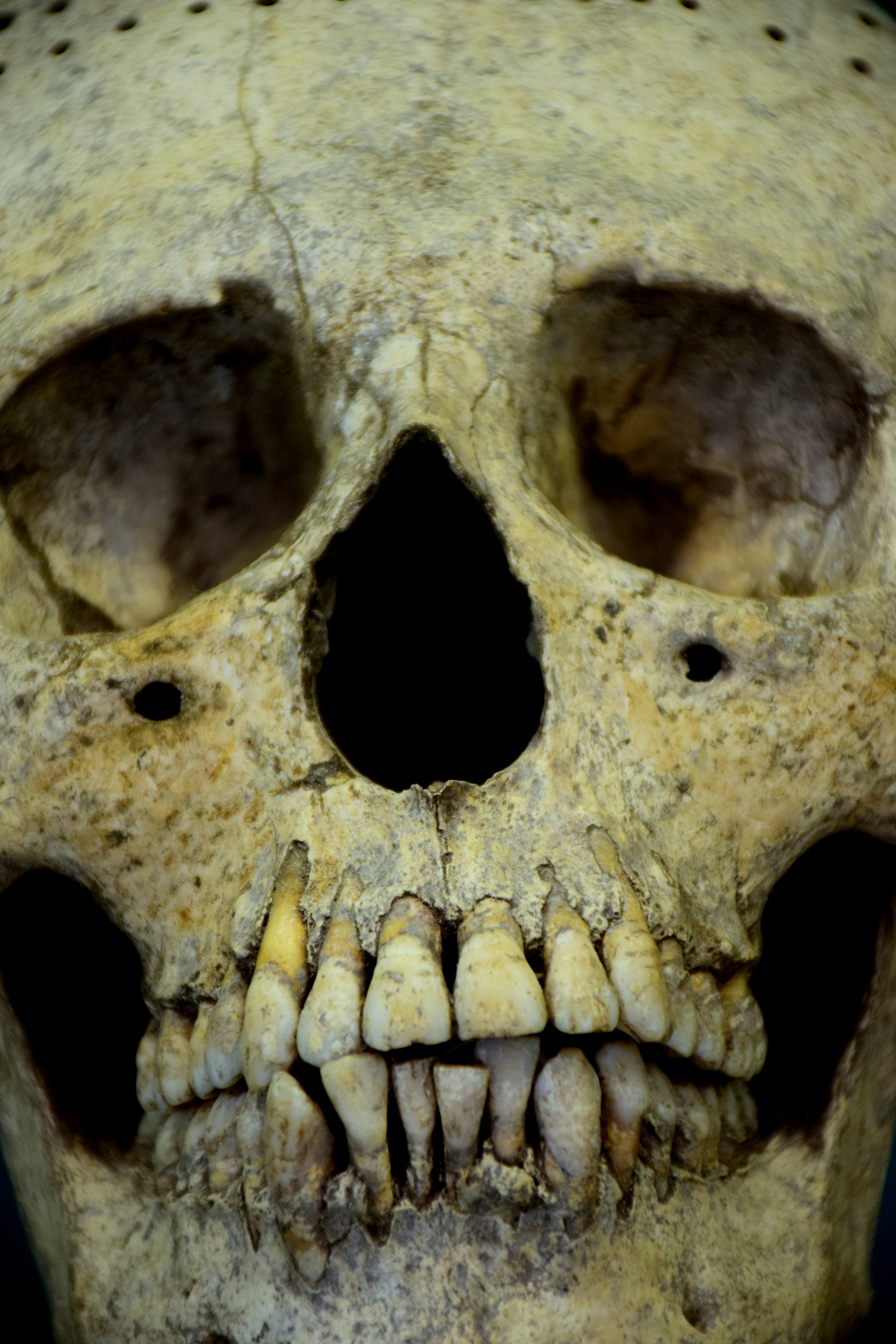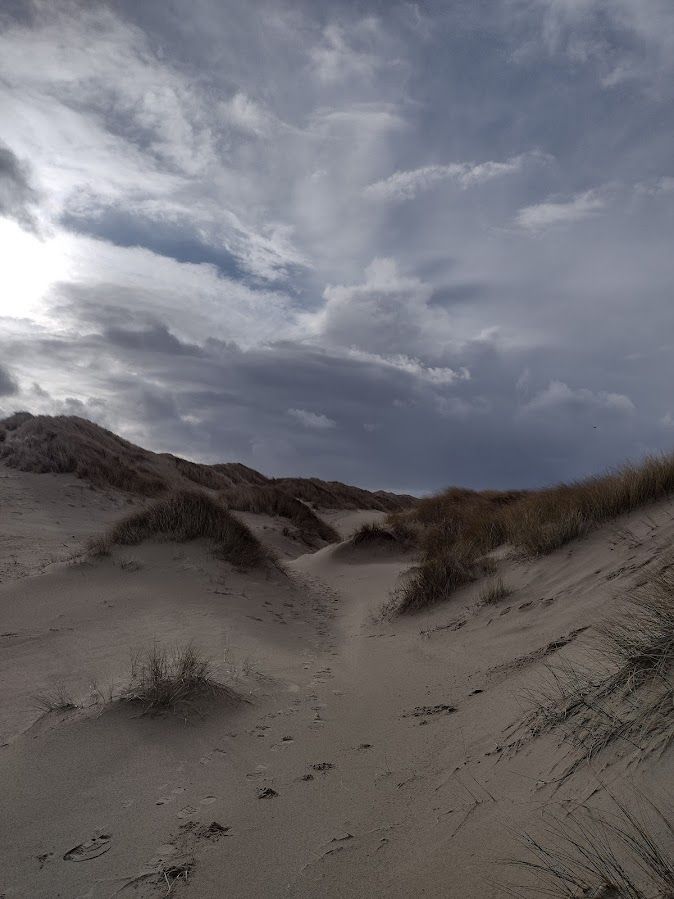
A brainy quote caps several end-of-year weeks musing about our useless, compulsive productivity, and offers a way forward
The titular quote was lifted from a recent offering from The Marginalian, which until recently was known as Brain Pickings. Maria Popova, who is brilliant, and even more brilliant at collecting and presenting us with prime literary offerings, landed this most recent of hers at a most profound time. I've been immersed in thoughts about a life lived in compulsive productivity, as have so many of us.
As I noted in another article recently, I've seen a number of other writers take up the hue and cry on this, as though Covid and a number of other issues have forced us to a reckoning with our cruel, anti-joy Calvinist past.
This is Popova's piece, which, given the extraordinary weariness that I feel as well as so many of my fellow writers and friends are experiencing, I offer as bright breath of fresh air:

Popova quotes Oliver Burkeman in this neat burrito-wrap of our collective idiocy, so determined are we to be busy that we lose our lives and their meaning in our all-out rush to fill it with meaningless activity in the name of achievement:
This strange moment in history, when time feels so unmoored, might in fact provide the ideal opportunity to reconsider our relationship with it. Older thinkers have faced these challenges before us, and when their wisdom is applied to the present day, certain truths grow more clearly apparent. Productivity is a trap. Becoming more efficient just makes you more rushed, and trying to clear the decks simply makes them fill up again faster. Nobody in the history of humanity has ever achieved “work-life balance,” whatever that might be, and you certainly won’t get there by copying the “six things successful people do before 7:00 a.m.” The day will never arrive when you finally have everything under control — when the flood of emails has been contained; when your to-do lists have stopped getting longer; when you’re meeting all your obligations at work and in your home life; when nobody’s angry with you for missing a deadline or dropping the ball; and when the fully optimized person you’ve become can turn, at long last, to the things life is really supposed to be about. (author bolded)
As someone who has been driven to achieve since I can recall, and for whom the slick hook of productivity porn was slipped into my cheek before I was five years old on my father's farm, this quote strikes me right in the heart.
It is a trap. And as long as I have been in this trap, like the gerbil forever rushing forward to nowhere on his wheel, accomplishing nothing more than marking time in the same place, I am getting off.
This quote underscores two recent articles where I pointed out precisely the same things, that my to do list will always be long, and my life will never be "fully optimized."
It's a lie. All of it. Every single bit of it is a lie.
It isn't that there's no value in achievement. It's the cost of the unrelenting demand that we maximize every single waking second, and worse, those of the lives of those around us as we optimize, maximize and monetize every living thing, including ourselves and those we say we love.
We in Western society don't love the world and the people in it. We love what they do for us. Make us rich. Make us feel important. In other words, the world serves our immense need for self-gratification rather than to simply be celebrated for itself. We experience "relationship" as "what are you going to do for me?"
It is our sickness as a society that we cannot see a tree but that we envision lumber, we cannot see an ocean but that we envision oil drilling, we cannot see a person but that we imagine them in our Multi-Level Marketing downline.
We insult every single gift we are given in such ways. It demeans us and it demeans the paradise we were gifted.
From the article, Popova quotes Burkeman again:
Denying reality never works, though. It may provide some immediate relief, because it allows you to go on thinking that at some point in the future you might, at last, feel totally in control. But it can’t ever bring the sense that you’re doing enough — that you are enough — because it defines “enough” as a kind of limitless control that no human can attain. Instead, the endless struggle leads to more anxiety and a less fulfilling life. (author bolded)
We grasp at Eastern philosophy, which entreats us to be in the present, to honor and take great succor from the simple fact of our existence, to draw great pleasure from breathing in and breathing out, to watching a bird float on an icy wind above a shoreline. To that, we even turned yoga into a competitive sport.

Many of us rush to the world's most lovely places and are, at least for a moment, astounded. We are face to face with an opportunity to be transformed.
Yet our response is to take a photo, post it to get likes, rather than to stand in awe that we are given such a world.
We are so often frozen into mindless statues by our plethor of choices, terrified that by choosing Option A we miss out on Options B through Z. Well, we must. And when we do choose, we set all manner of things in motion, that lovely circus ride that allows us to experience, and perhaps later, choose differently. Along the way other options disappear, as they must.
Popova writes:
With an eye to the etymology of “decide” — which stems from the Latin decidere, “to cut off,” a root it shares with “homicide” and “suicide” — Burkeman considers the necessity of excision:
Any finite life — even the best one you could possibly imagine — is therefore a matter of ceaselessly waving goodbye to possibility… Since finitude defines our lives… living a truly authentic life — becoming fully human — means facing up to that fact.
[…]
It’s only by facing our finitude that we can step into a truly authentic relationship with life.
I strongly recommend you read the whole article, for Popova peppers it with her gemlike quotes about our mortality and the grave and ancient beauty of our brevity on this earth in such a away that she opens the door to a state of grace.
My Linked In feeds, Medium articles and everything around me shriek about hacks and productivity right about the time I have flipped the bird at all of it. While I will continue certain disciplines, proper food and exercise, for example, and writing, which I love, last week I set aside every Wednesday for the rest of 2022 into infinity for Hump Day.
That is my first line in the sand against brutal productivity. I will be pushing that line farther and farther back, for as I grey into my seventies, I am reclaiming the life I never lived, the joy I never gave myself in that headlong, grasping need for hero buttons.
They don't exist.
Last Friday was my first official "Hump Day." I peeled myself bodily from my office chair where I spend far too many hours writing. Drove through lovely driving rain through the rainforests of my beloved adopted Pacific Northwest. Then spent several cold, wickedly fun and icy hours gamboling like a shaggy dog on the great rolling sand dunes of the beaches just north of Florence.
That is living.
This final quote from Burkeman sums it all up for me, that hot spicy truth in a burrito wrap that is deeply satisfying because it precisely underscores my decision to Get Off the Gerbil Wheel:
Worry, at its core, is the repetitious experience of a mind attempting to generate a feeling of security about the future, failing, then trying again and again and again — as if the very effort of worrying might somehow help forestall disaster. The fuel behind worry, in other words, is the internal demand to know, in advance, that things will turn out fine: that your partner won’t leave you, that you will have sufficient money to retire, that a pandemic won’t claim the lives of anyone you love, that your favored candidate will win the next election, that you can get through your to-do list by the end of Friday afternoon. But the struggle for control over the future is a stark example of our refusal to acknowledge our built-in limitations when it comes to time, because it’s a fight the worrier obviously won’t win. (author bolded)
One reason I travel overseas and do so in such extreme circumstances is because it has taught me not only resilience but also that I have extraordinary skills in dealing with how life presents itself. Those only came from giving myself over to the moment, and releasing worrying about what if. Or worse, what if I travel THERE, and miss out by not going HERE?

Every day I face the morning dark, still deep in the quiet cold of the Oregon snow which blanketed our firs this past week, and ask what shall I do today? Where shall I go? And increasingly I also ask, how shall I give myself the gift of time?
The answer, so far at least, is to remove more and more of the compulsive busy-ness, the endless to-do lists, the guilt that I feel for not striking off twelve things from my four pages of projects.
Being alive is enough of a gift. Standing in my kitchen, watching the flickers and downy woodpeckers balance on the suet, the endless bickering of the birds over the best spots for the best seeds, is life enough. I will still eat well. Exercise. I will still write, read and travel, explore and adventure.
Those give me joy.
But above all I will exercise my choice to not be consumed by the need to prove my value to an uncaring world by overachievement. Death comes all too soon to us all. I face my own "grand foreclosure" all too soon. I am done giving away my limited time to the gods of productivity hacks, who only benefit from my miserable addiction to prove myself worthy by doing until I am done.

Being witness to the Paradise we were bequeathed is life enough.
Dear Reader: I strongly encourage you to subscribe and give to Popova's work. She adds tremendous value in how she curates great works ands helps us find the best reading options. It is a gift to us as readers and writers alike.

Comments powered by Talkyard.